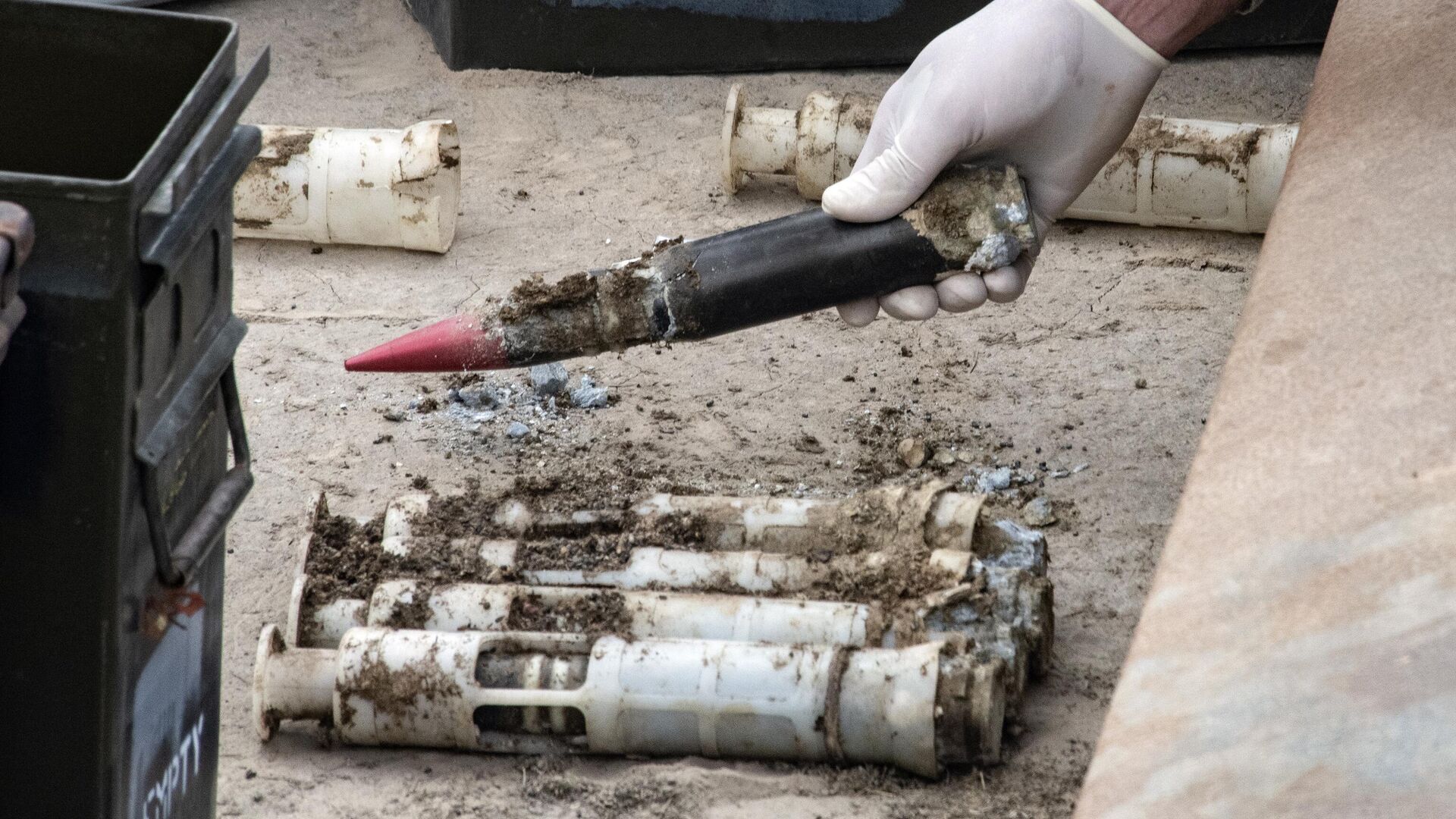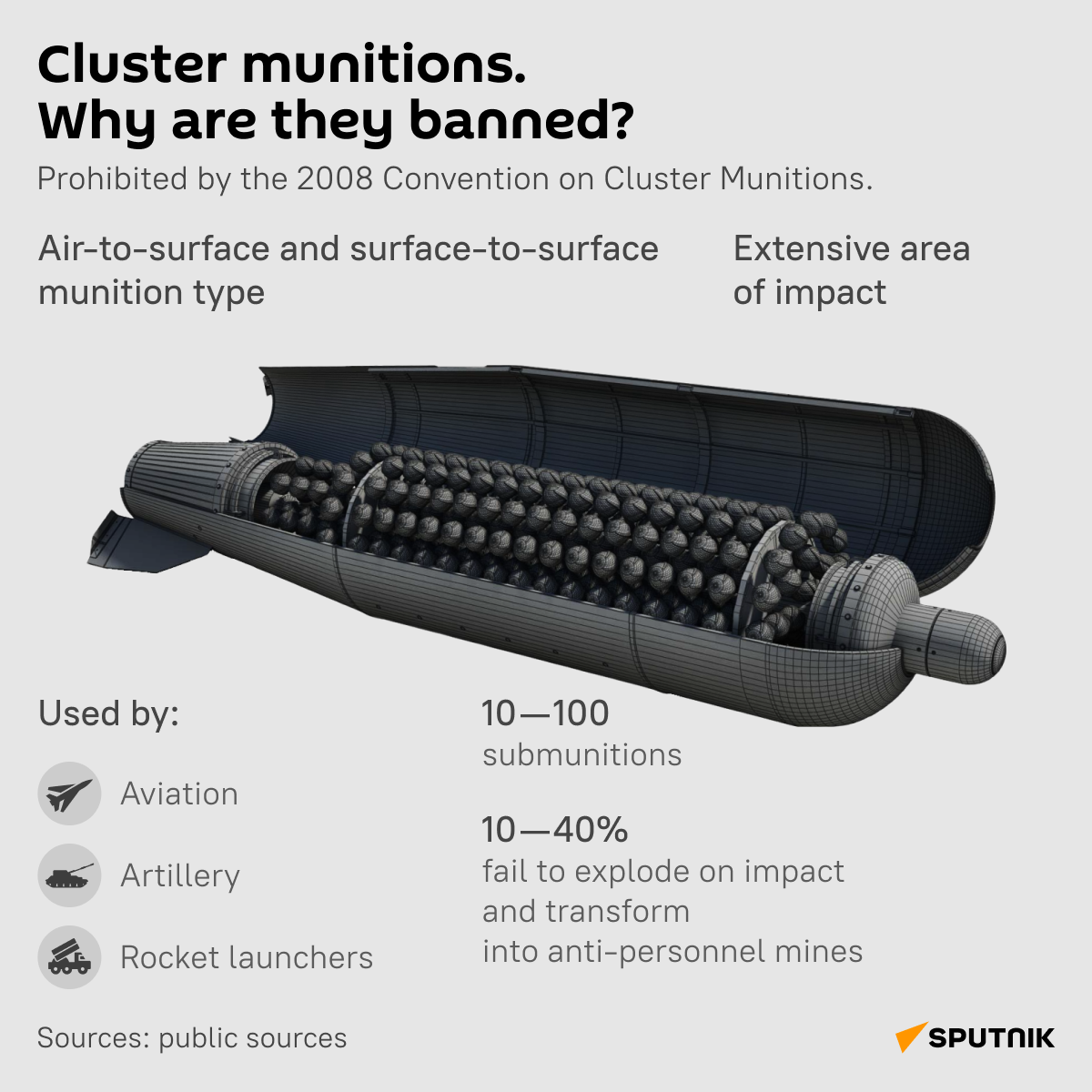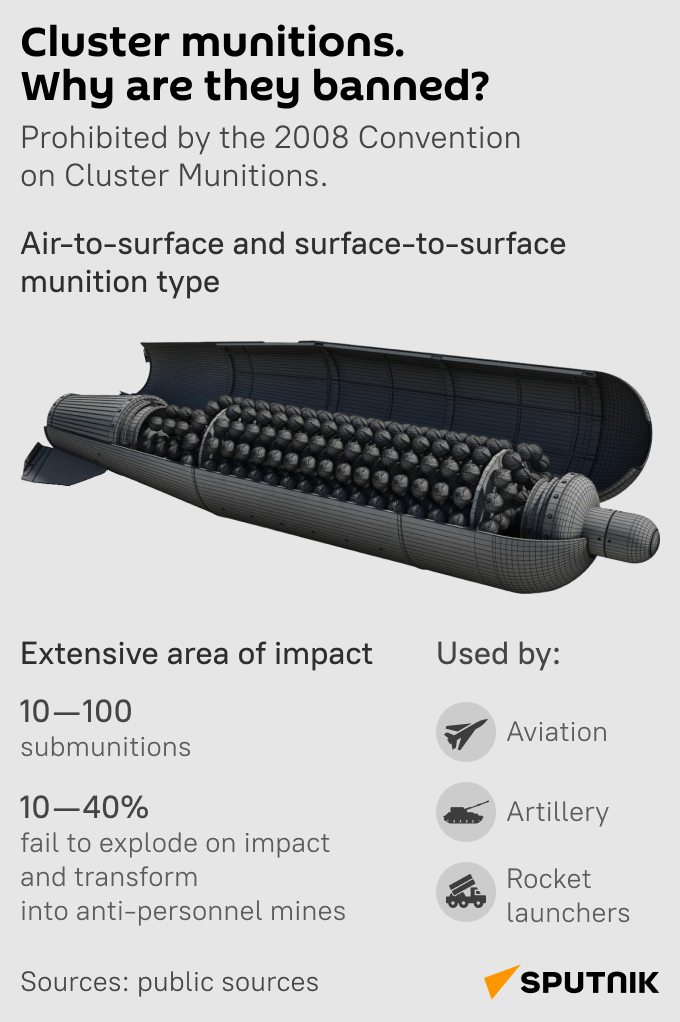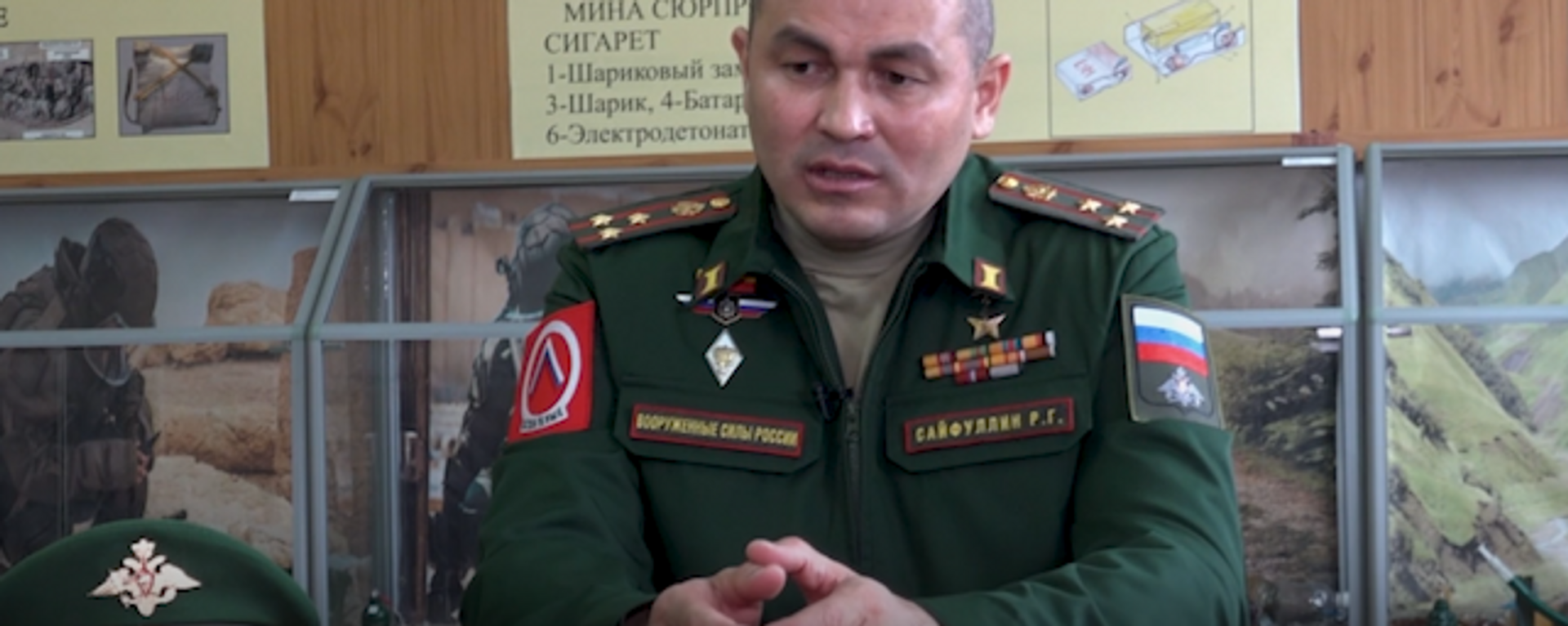https://sputniknews.in/20230907/russia-rips-into-white-houses-claims-on-uranium-munitions-to-ukraine-4095168.html
Russia Rips Into White House's Claims on Uranium Munitions to Ukraine
Russia Rips Into White House's Claims on Uranium Munitions to Ukraine
Sputnik India
The Russian Foreign Ministry on Thursday tore into the reported White House statement that the depleted uranium munitions which Washington is supplying to Kiev do not pose a major radioactive threat.
2023-09-07T16:40+0530
2023-09-07T16:40+0530
2023-09-07T17:31+0530
ukraine conflict
russia
russian armed forces
russian foreign ministry
ukraine
ukraine armed forces
special military operation
depleted uranium
cluster munitions
nato
https://cdn1.img.sputniknews.in/img/07e7/06/0e/2491434_0:160:3072:1888_1920x0_80_0_0_389d3e6e0618aa226384a1bead0a86b2.jpg
The Russian Foreign Ministry on Thursday castigated the White House’s reported statement that the depleted uranium munitions which Washington is supplying to Ukraine do not pose a major radioactive threat.According to her, the history of the usage of depleted uranium munitions in erstwhile Yugoslavia was a testament to the destruction these controversial weapons can cause to human lives. Russia has repeatedly slammed Western supplies of cluster munitions to Ukraine, terming their us as inhumane and responsible for the death of journalists covering the Ukraine conflict. Notably, Sputnik war correspondent Rostislav Zhuravlev died in the zone of the special military op in July. His wounds resulted from the cluster munitions exploding.Usage of Depleted Uranium Shells Caused Widespread Sufferings in SerbiaZakharova pointed out that a report published by the Italian parliament mentioned the sufferings of the people of Yugoslavia after NATO used depleted uranium shells during their bombing campaign in the country in 1999. NATO's military intervention in Yugoslavia also resulted in the spread of various diseases among the Serbians following the bloc's decision to drop bombs in and around Serb-majority regions of the former sovereign state.NATO's unilateral aggression against Yugoslavia came following allegations that the Yugoslav forces were targeting ethnic Albanians in the then Southeast and Central European nation.The Serbian Health Ministry noted that the country experienced a spike in many diseases, particularly in the areas that were targeted by NATO's military campaign.This included a jump in cases of cancer, reduced male fertility, and pathological pregnancies, besides an increase in mental disorders among children and a rise in autoimmune diseases across age groups.
https://sputniknews.in/20230906/ukraines-use-of-notorious-petal-mines-poses-deadly-danger-to-children--4069720.html
russia
ukraine
us
moscow
serbia
Sputnik India
feedback.hindi@sputniknews.com
+74956456601
MIA „Rossiya Segodnya“
2023
Pawan Atri
https://cdn1.img.sputniknews.in/img/07e6/0c/13/139630_147:0:831:684_100x100_80_0_0_8fa2b25903e7787fe6a2698552c167df.png
Pawan Atri
https://cdn1.img.sputniknews.in/img/07e6/0c/13/139630_147:0:831:684_100x100_80_0_0_8fa2b25903e7787fe6a2698552c167df.png
News
en_IN
Sputnik India
feedback.hindi@sputniknews.com
+74956456601
MIA „Rossiya Segodnya“
Sputnik India
feedback.hindi@sputniknews.com
+74956456601
MIA „Rossiya Segodnya“
Pawan Atri
https://cdn1.img.sputniknews.in/img/07e6/0c/13/139630_147:0:831:684_100x100_80_0_0_8fa2b25903e7787fe6a2698552c167df.png
russian foreign ministry on depleted uranium munitions, russian foreign ministry depleted uranium munitions, russian foreign ministry statement depleted uranium munitions, what russian ministry said on us supplies of depleted uranium munitions to ukraine, russia-ukraine war, ukraine-russia war, ukraine-russia war latest, ukraine latest, ukraine's counteroffensive, special military operation, depleted uranium munitions ukraine us russia, depleted uranium munitions us ukraine,
russian foreign ministry on depleted uranium munitions, russian foreign ministry depleted uranium munitions, russian foreign ministry statement depleted uranium munitions, what russian ministry said on us supplies of depleted uranium munitions to ukraine, russia-ukraine war, ukraine-russia war, ukraine-russia war latest, ukraine latest, ukraine's counteroffensive, special military operation, depleted uranium munitions ukraine us russia, depleted uranium munitions us ukraine,
Russia Rips Into White House's Claims on Uranium Munitions to Ukraine
16:40 07.09.2023 (Updated: 17:31 07.09.2023) Russia has repeatedly slammed the US and its NATO allies for supplying Ukraine with cluster and depleted uranium munitions as they pose a grave threat to the civilian population in the conflict zone.
The Russian Foreign Ministry on Thursday castigated the White House’s reported statement that the depleted uranium munitions which Washington is supplying to Ukraine do not pose a major radioactive threat.
"I wrote many times about the toxicity of depleted uranium, the special danger of radioactive dust for human health and soil contamination with radionuclides, I would like to remind everyone that the number of cancer cases spiked in the areas where depleted uranium munitions have been used," Russian Ministry of Foreign Affairs spokeswoman Maria Zakharova said in response to a question by reporters in Moscow.
According to her, the history of the usage of depleted uranium munitions in erstwhile Yugoslavia was a testament to the destruction these controversial weapons can cause to human lives.
"NATO military personnel can testify to that, especially Italian servicemen, who did not know about this during the bloc’s aggression against Yugoslavia," she added.
Russia has repeatedly slammed Western supplies of cluster munitions to Ukraine, terming their us as inhumane and responsible for the death of journalists covering the Ukraine conflict. Notably, Sputnik war correspondent Rostislav Zhuravlev died in the zone of the special military op in July. His wounds resulted from the cluster munitions exploding.
Usage of Depleted Uranium Shells Caused Widespread Sufferings in Serbia
Zakharova pointed out that a report published by the Italian parliament mentioned the sufferings of the people of Yugoslavia after NATO used depleted uranium shells during their bombing campaign in the country in 1999.
"Out of the 7,500 people subjected to the effects of toxic agents and radiation, 372 have died (that is a 5 percent mortality rate, or every 20th person). Moreover, they
died of painful cancer complications such as renal dysfunction, lung cancer, bone cancer, oesophagus cancer, degenerative skin disorder, Hodgkin’s lymphoma, and leukaemia," the Russian MFA official asserted.
NATO's military intervention in Yugoslavia also resulted in the spread of various diseases among the Serbians following the bloc's decision to drop bombs in and around Serb-majority regions of the former sovereign state.
NATO's unilateral aggression against Yugoslavia came following allegations that the Yugoslav forces were targeting ethnic Albanians in the then Southeast and Central European nation.
The Serbian Health Ministry noted that the country experienced a spike in many diseases, particularly in the areas that
were targeted by NATO's military campaign.
This included a jump in cases of cancer, reduced male fertility, and pathological pregnancies, besides an increase in mental disorders among children and a rise in autoimmune diseases across age groups.





